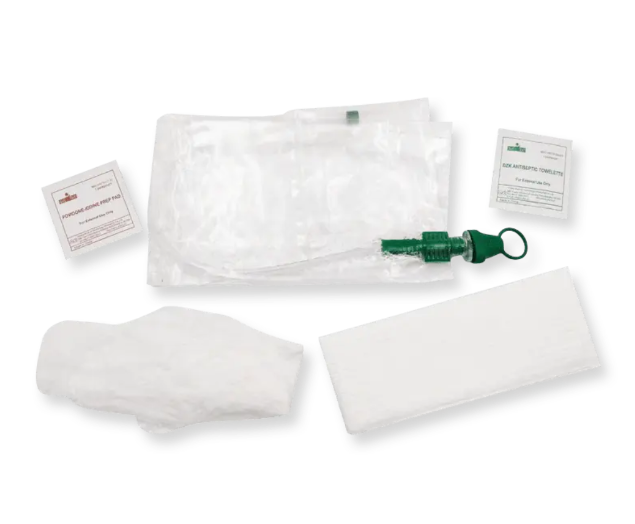TEl: +86-13148388090
Fax:+86-571-88616515
How to Effectively Manage Leaking Urine by Female Intermittent Catheters?
Author: admin / 2024-11-05Around 33% of women globally experience urinary incontinence, making them often feel anxious about going out. Leaks can occur during simple actions like sneezing or laughing, leading to embarrassing situations. To have a normal life, patients should ask doctors for professional advice, because doctors will recommend useful solutions based on their situations. Now, let's take time to read this article and get to know about urinary incontinence, why women are more prone to it, and how intermittent catheters can support effective management.

What is Urinary Incontinence?
Urinary incontinence refers to the loss of bladder control, often caused by damage to the bladder’s sphincter muscle or by nerve dysfunction. This condition leads to an inability to control urine flow. For some, even laughter can trigger leakage, impacting daily activities. When it reaches this stage, it’s essential to consult the doctor.
Why Are Women More Prone to Urinary Incontinence?
Urinary incontinence is mostly caused by the relaxation of pelvic muscles and the gradual loss of elasticity of the urethral sphincter. In women, these functions decline during pregnancy and childbirth. Moreover, the female urethra is relatively short and the urethral sphincter is relatively weak. Therefore, when women face increased abdominal pressure, such as coughing, laughing, or strenuous exercise, they are more likely to inadvertently leak urine.
Additionally, increasing age is also an important factor in female urinary incontinence. As women age, their pelvic floor muscles may gradually lose elasticity and their sphincter function may gradually weaken. Especially for women entering menopause, due to changes in hormonal levels in the body, estrogen levels decrease significantly, which will adversely affect the function of the bladder and urethra, further increasing the risk of urinary incontinence. In order to avoid affecting your life, you need to seek help from your doctor in time.
What are Female Intermittent Catheters?
The length and shape of the female intermittent catheter are specially designed to fit the female urethra structure. It is a common care tool for female incontinence patients to manage bladder urination and can be used in cases of urinary incontinence, urinary retention or other urinary difficulties. The use of intermittent catheters can effectively empty the bladder, reduce urine retention and avoid infection.
How Intermittent Catheters Support Continence Care?
Intermittent catheters help drain urine from the bladder at specific times. They are an effective option for women with urinary continence, especially those whose bladder control is impaired due to neurological diseases (such as spinal cord injury, multiple sclerosis, etc.). By using a catheter, patients do not have to worry about frequent urinary incontinence and can avoid the risk of infection caused by wearing a catheter for a long time.
Improving Daily Life with Intermittent Catheters
-
Accident Prevention: Intermittent catheters allow scheduled bladder emptying, offering better control and reducing accidental leakage.
-
Lowered Infection Risk: Unlike indwelling catheters, intermittent catheters are used only as needed, greatly reducing the risk of urinary tract infections.
-
Confidence in Activities: With flexible catheter use, women can participate in various activities confidently, without concerns about incontinence.
-
Enhanced Quality of Life: By regularly using intermittent catheters, women gain autonomy and improve both daily life quality and emotional well-being.
Safe Usage Tips
-
Select hypoallergenic materials for the catheter.
-
Follow medical instructions carefully for proper insertion.
-
Maintain strict hygiene practices to keep the catheter clean and minimize infection risk.
Following healthcare professionals' guidance ensures safe, effective catheter use, promoting greater independence and comfort.
Why Some Women Avoid Seeking Treatment?
Urinary incontinence is often seen as a private, uncomfortable topic, which can discourage women from seeking help. Some mistakenly view continence as a natural part of aging and ignore its treatability. In reality, with proper preventative and therapeutic measures, the impact of incontinence can be minimized or even eliminated. A balanced lifestyle that includes a healthy diet, regular exercise, and weight management can further reduce risks, as can avoiding smoking, excessive drinking, and constipation.
Health Impacts of Urinary Incontinence
Beyond urinary tract infections, incontinence can lead to gynecological and skin issues, severely impacting social interactions and mental health, often leading to low self-esteem, anxiety, and depression. Given its impact, incontinence is sometimes called the “social cancer” of women's health. Despite the challenges it poses, treatment and diagnosis rates remain low.
The Bottom Line
Urinary continence can significantly impact patients' lives, so it is important to have timely treatment. Women should not hesitate to seek effective solutions, as continence can be both preventable and manageable. For many, intermittent catheters offer a practical, flexible option to help restore daily routines. Choosing appropriate continence care products can empower women to better manage this condition.
As a specialized supplier of continence care products, Bever Medical is committed to offering high-quality products and OEM services that deliver superior care experiences. Browse our website, learn about our offerings and join us in enhancing the incontinence care journey.


